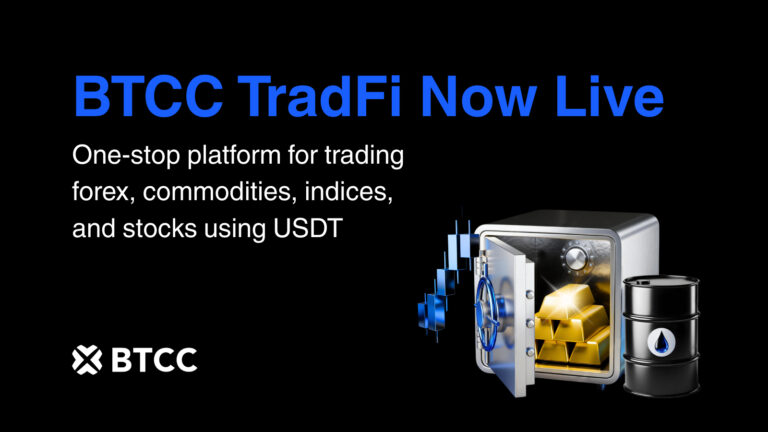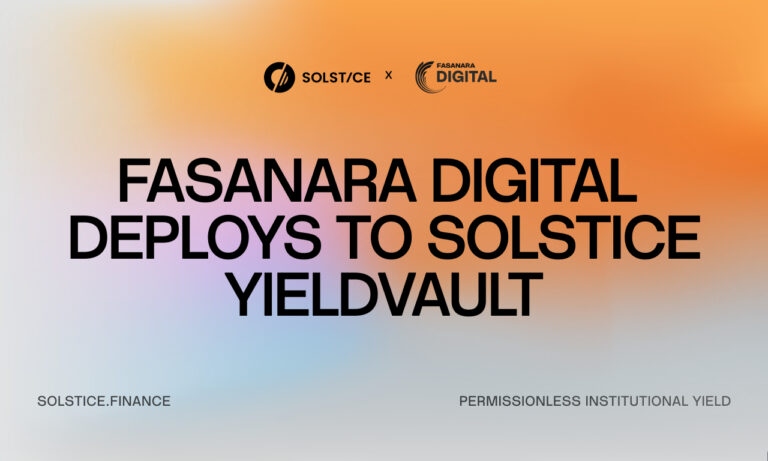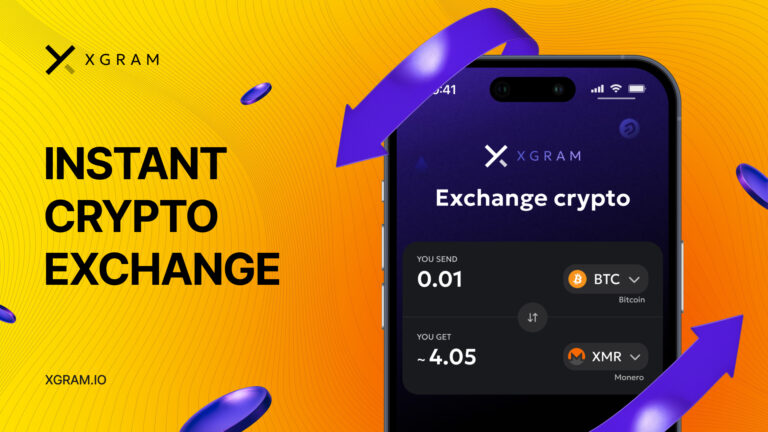Land Informatie
Extra Informatie
Website
Extra Links
Social Media & Nieuws
Ranking
Blockchain overzicht
Categorie:
| Naam | Categorie |
|---|
Veelgestelde vragen
Description
Disclaimer: The regulatory information provided below is for general informational purposes only and may not reflect the most current legal developments. Cryptocurrency regulations are rapidly evolving and can change frequently. This information should not be considered legal or tax advice. Before making any business or investment decisions, please consult with qualified legal, tax, or financial professionals familiar with your specific jurisdiction and circumstances. Always verify current regulations with official government sources and regulatory bodies.
Legal Classification & Regulatory Framework
Cryptocurrency Status
Bahrain has established itself as a regional pioneer in cryptocurrency regulation, implementing one of the Middle East’s most comprehensive and forward-thinking regulatory frameworks for digital assets. The Central Bank of Bahrain operates under a clear legal structure that recognizes cryptocurrencies and digital assets as legitimate financial instruments requiring appropriate oversight, while simultaneously supporting innovation and market development.
Under Bahraini law, crypto-assets are defined as virtual or digital assets, commonly referred to as tokens, that operate on blockchain platforms and are protected by cryptography. The regulatory framework classifies these assets into distinct categories: payment or exchange tokens (cryptocurrencies like Bitcoin and Ethereum), asset tokens representing claims on issuers such as debt or equity, utility tokens providing access to specific applications or services, and hybrid tokens combining features of multiple categories. This nuanced classification enables targeted regulatory approaches based on the specific characteristics and risks associated with each token type.
The Central Bank of Bahrain issued its foundational crypto-asset regulations under Volume Six of the CBB Rulebook, establishing a structured legal framework that has evolved significantly since initial implementation. Subsequent amendments have expanded the regulatory scope to encompass digital token offerings, specifically addressing tokens that exhibit characteristics of securities. When determining whether a digital token qualifies as a security, the CBB examines the underlying economic purpose of the token, its structure, characteristics, and the rights attached to it, ensuring that investor protection measures apply appropriately.
More recently, Bahrain introduced comprehensive regulations governing stablecoin issuance and offerings, positioning the kingdom among a select group of jurisdictions with dedicated stablecoin frameworks. This demonstrates the CBB’s commitment to addressing emerging developments in the digital asset space while maintaining financial stability and consumer protection standards. The regulatory approach emphasizes risk-based supervision, with requirements proportionate to the activities undertaken by licensed entities.
Tax Treatment
Bahrain offers one of the most attractive tax environments globally for cryptocurrency activities, characterized by the absence of personal income tax and capital gains tax. Individual investors and traders can buy, sell, hold, and trade cryptocurrencies without incurring income tax or capital gains tax on their profits. This tax-neutral framework extends to cryptocurrency mining activities conducted by individuals, creating a highly favorable environment for personal cryptocurrency investment and trading.
The absence of capital gains taxation means that appreciation in cryptocurrency holdings can be realized without triggering personal tax liabilities, distinguishing Bahrain from many jurisdictions that tax cryptocurrency gains as either income or capital gains. This policy has contributed significantly to the kingdom’s attractiveness as a destination for cryptocurrency investors and high-net-worth individuals seeking tax-efficient structures for digital asset holdings.
However, cryptocurrency-related business activities face different tax considerations. Bahrain imposes Value Added Tax at a standard rate of five percent on taxable supplies of goods and services. Since regulatory amendments, crypto-assets have been treated as taxable goods and services for VAT purposes. Consequently, crypto-asset service providers offering trading, brokerage, custody, and related services may be required to charge VAT to their clients, though the specific application depends on the nature of services provided and whether they qualify as VAT-exempt financial services.
Regarding corporate taxation, Bahrain traditionally maintained a zero corporate income tax rate for most businesses, creating additional advantages for cryptocurrency companies. However, businesses operating in the oil and gas sector or those with foreign ownership in that sector face income tax at substantially higher rates. Financial institutions are subject to specific tax treatments. Furthermore, Bahrain has implemented a Domestic Minimum Top-Up Tax aligned with international standards, affecting large multinational enterprise groups with global consolidated revenues exceeding specific thresholds, ensuring a minimum effective tax rate is maintained.
Regulatory Oversight
The Central Bank of Bahrain serves as the sole regulatory authority responsible for overseeing cryptocurrency and digital asset activities within the kingdom. As Bahrain’s integrated financial regulator, the CBB holds comprehensive powers to license, supervise, and enforce compliance among crypto-asset service providers operating in or from Bahrain. This centralized regulatory structure provides clarity and consistency, eliminating potential conflicts or gaps that might arise from multiple regulatory authorities.
The CBB’s Crypto-Asset Module within its Rulebook establishes detailed requirements covering licensing procedures, governance standards, minimum capital requirements, risk management frameworks, anti-money laundering and counter-terrorism financing obligations, conflicts of interest management, business conduct standards, client asset safeguarding, and cybersecurity protocols. These comprehensive regulations address the full spectrum of operational considerations for cryptocurrency businesses, ensuring that licensed entities maintain appropriate standards across all critical areas.
The regulatory framework requires any person or establishment wishing to undertake crypto-asset activities for business purposes within or from Bahrain to obtain a license from the CBB. Activities are deemed to be conducted in or from Bahrain when the entity is incorporated in Bahrain or directly solicits clients within the kingdom. This extraterritorial reach ensures that foreign entities serving Bahamian customers cannot circumvent regulatory requirements by operating from offshore locations without appropriate authorization.
The CBB has established a dedicated FinTech and Innovation Unit responsible for processing regulatory sandbox applications, supervising licensed companies’ activities and operations, and monitoring technical and regulatory developments in the fintech field. This specialized unit demonstrates the CBB’s commitment to understanding and appropriately regulating innovative financial technologies while supporting legitimate market development. The unit works collaboratively with industry participants, providing guidance and facilitating dialogue between regulators and businesses to ensure regulations remain practical and effective.
Business Environment
Banking Relationships
Bahrain’s banking sector has demonstrated notable openness to working with licensed cryptocurrency businesses, distinguishing the kingdom from many jurisdictions where crypto-related entities struggle to access traditional banking services. The clear regulatory framework established by the CBB has created confidence among banks regarding the legitimacy and compliance standards of licensed crypto-asset service providers, facilitating banking relationships that might otherwise be difficult to establish.
Licensed cryptocurrency exchanges and service providers operating under CBB supervision can typically establish corporate banking relationships with Bahraini financial institutions. Banks conduct enhanced due diligence on cryptocurrency businesses, as they would with any high-risk client category. Still, the existence of regulatory licenses and ongoing CBB supervision assures that these entities operate within appropriate compliance frameworks. This regulatory clarity reduces banks’ concerns about facilitating money laundering or terrorism financing through cryptocurrency channels.
Several prominent international cryptocurrency exchanges have successfully obtained licenses from the CBB and established operations in Bahrain, including major platforms that were among the first in the Gulf Cooperation Council region to receive such authorization. These successful licensing cases demonstrate that substantive cryptocurrency businesses can operate effectively in Bahrain with appropriate banking support. The presence of both conventional and Sharia-compliant banking options provides additional flexibility for crypto businesses seeking banking relationships aligned with Islamic finance principles.
The banking environment benefits from Bahrain’s long-established position as a regional financial services hub with sophisticated banking infrastructure and internationally-oriented institutions. Many banks in Bahrain have experience serving innovative financial services businesses and understand the unique operational requirements of technology-driven companies. However, cryptocurrency businesses should still expect thorough due diligence processes, ongoing transaction monitoring, and potential restrictions on certain high-risk activities, reflecting prudent risk management practices rather than categorical exclusion from banking services.
Licensing Requirements
Operating a crypto-asset service business in Bahrain requires obtaining one of four license categories established by the CBB, each corresponding to different types of activities and carrying specific capital requirements and regulatory obligations. This tiered licensing structure enables businesses to obtain authorization appropriate to their planned operations while ensuring that regulatory requirements remain proportionate to the risks associated with different service types.
Category One licenses cover crypto-asset custody services, where licensees hold customers’ cryptocurrencies and manage private keys on their behalf. This represents the highest risk category due to the direct responsibility for safeguarding customer assets. Minimum capital requirements for Category One licenses are set at two hundred thousand Bahraini Dinars, reflecting the enhanced financial resources needed to operate custody services safely. Annual licensing fees range from a minimum of two thousand to a maximum of thirty-five thousand Bahraini Dinars, calculated as a percentage of operational expenses.
Category Two licenses authorize operation of crypto-asset exchanges or trading platforms that match buyers and sellers. These platforms facilitate the trading, conversion, or exchange of accepted crypto-assets in accordance with exchange rules. The minimum capital requirement for Category Two licenses is 150,000 Bahraini Dinars. This category has attracted significant interest from both local and international exchange operators seeking to serve the Gulf region under clear regulatory frameworks.
Category Three licenses cover crypto-asset brokerage and dealing services, including order reception and transmission, executing orders on behalf of clients, and dealing on the licensee’s own account. Portfolio management and investment advisory services related to crypto-assets also fall within this category. The minimum capital requirement for Category Three licenses is one hundred thousand Bahraini Dinars, reflecting the lower direct custody risk compared to exchange or custody services.
Category Four licenses address other crypto-asset-related services not falling within the stipulated regulated crypto-asset services. This flexible category enables the CBB to authorize novel business models and services as the market evolves, with specific requirements determined on a case-by-case basis. All license categories require compliance with comprehensive regulatory standards, including fit-and-proper assessments of directors and senior management, robust governance frameworks, appropriate technology infrastructure, comprehensive AML/CFT programs, and adequate insurance coverage.
Innovation Support
Bahrain has established a obust infrastructure to support financial technology innovation, with particular emphasis on creating environments where blockchain and cryptocurrency businesses can develop and test new solutions. The kingdom’s approach combines regulatory frameworks that provide clarity and certainty with active support programs designed to accelerate fintech ecosystem development, positioning Bahrain as a leading fintech hub in the Middle East region.
The CBB’s Regulatory Sandbox Framework, launched initially and subsequently enhanced, represents a cornerstone of Bahrain’s innovation support strategy. This framework provides a controlled environment where both licensed financial institutions and fintech startups can test technology-based innovative solutions without immediately facing the full burden of regulatory requirements. Participants can operate in the sandbox for up to two years, with the possibility of extensions, enabling thorough testing and refinement of new products and services before full market deployment.
To qualify for sandbox participation, applicants must demonstrate genuine innovation, clear customer benefits, technical readiness for testing, and commitment to eventual deployment in Bahrain. The sandbox has attracted substantial interest from local, regional, and international participants, with cryptocurrency and blockchain solutions representing a significant portion of applications. Several companies have successfully graduated from the sandbox and obtained full regulatory licenses, validating the effectiveness of this approach in supporting viable innovations while maintaining appropriate oversight.
FinHub 973 represents another significant innovation support initiative. Described as the region’s first cross-border digital innovation platform, FinHub 973 connects financial institutions and fintechs under CBB supervision, facilitating collaboration, testing, and prototyping. The platform features an open banking API sandbox hosting hundreds of APIs, enabling fintech developers to build, test, and deploy solutions in coordination with traditional financial institutions. This infrastructure reduces barriers to entry and accelerates the development cycle for innovative financial services, including those incorporating cryptocurrency and blockchain technologies.
Beyond regulatory sandboxes and digital platforms, Bahrain provides broader ecosystem support through initiatives including Bahrain FinTech Bay, which has incubated numerous startups since its establishment, government economic development programs offering grants and incentives to technology companies, regulatory frameworks specifically addressing crowdfunding for both conventional and Sharia-compliant models, and active government promotion of Bahrain as a fintech destination through international marketing and partnership development. The combination of regulatory clarity, testing environments, and broader ecosystem support creates favorable conditions for cryptocurrency and blockchain innovation.
Market Characteristics
Adoption Patterns
Cryptocurrency adoption in Bahrain exhibits characteristics of a maturing market with strong institutional presence and growing retail participation. The clear regulatory framework has attracted significant institutional interest, with major international cryptocurrency platforms establishing licensed operations in the kingdom. These platforms serve not only Bahraini residents but customers throughout the Gulf Cooperation Council region, leveraging Bahrain’s regulatory clarity and supportive business environment to build regional operations.
The presence of Sharia-compliant cryptocurrency exchanges represents a distinctive feature of Bahrain’s market, reflecting the importance of Islamic finance principles in the region. These platforms have obtained regulatory approval to operate exchanges that comply with Sharia requirements, addressing concerns among Muslim investors about the permissibility of cryptocurrency investments and creating opportunities for faith-based financial inclusion in the digital asset space. This innovation demonstrates how Bahrain’s regulatory framework can accommodate diverse business models serving different customer segments.
Retail cryptocurrency adoption among Bahraini residents has grown steadily, though it remains more prevalent among younger, technology-savvy demographics. The availability of licensed, regulated platforms under CBB supervision instills confidence that may be lacking in markets where cryptocurrency services operate in regulatory gray areas. Investors can access major cryptocurrencies, including Bitcoin, Ethereum, and other established digital assets, through multiple licensed platforms, with both simple buying and selling services and more sophisticated trading options available.
The broader fintech ecosystem’s development has created a supportive environment for cryptocurrency adoption. Bahrain’s emphasis on digital banking, mobile payments, and open banking infrastructure familiarizes residents with technology-driven financial services, reducing barriers to cryptocurrency adoption. The government’s Economic Recovery Plan explicitly identifies the crypto-assets market as an area for development, signaling official support for continued market growth. However, cryptocurrency use for everyday payments and commerce remains limited, with digital assets primarily serving investment and trading purposes rather than functioning as a widely accepted payment medium.
Industry Focus
Bahrain’s cryptocurrency industry concentrates heavily on regulated service provision rather than speculative or unregulated activities, reflecting the kingdom’s emphasis on compliance and institutional-grade operations. The types of businesses thriving in Bahrain tend to be established entities with sophisticated compliance capabilities and the resources to meet regulatory requirements, rather than early-stage startups lacking regulatory infrastructure. This creates a market characterized by professional operations serving both retail and institutional clients.
Cryptocurrency exchanges represent the most prominent sector, with both international platforms establishing Bahraini subsidiaries and local entities developing exchange services specifically for the regional market. These exchanges benefit from regulatory licenses that enable them to operate with legal certainty, access banking services, and market their services openly to customers throughout the GCC. The combination of regulatory clarity, tax advantages, and strategic location makes Bahrain an attractive jurisdiction for exchange operators seeking to serve Middle Eastern markets.
Custody and asset management services constitute another growing sector, as institutional investors increasingly seek regulated custody solutions for cryptocurrency holdings. Licensed custodians can differentiate themselves through compliance with CBB requirements for client asset safeguarding, insurance, and operational controls. The availability of both conventional and Sharia-compliant options expands the potential client base to include Islamic financial institutions and investors requiring adherence to religious principles.
Blockchain technology companies developing applications beyond pure cryptocurrency services have found Bahrain supportive, particularly when solutions address financial services use cases. The regulatory sandbox and broader fintech support infrastructure enable testing of innovations, including blockchain-based payment systems, smart contract platforms, digital identity solutions, and tokenization of traditional assets. Companies developing enterprise blockchain solutions for banking, supply chain management, and government applications can leverage Bahrain’s technology infrastructure and access to regional markets.
Professional services supporting the cryptocurrency industry have developed significantly, with law firms, consultancies, and accounting practices building specialized expertise in digital asset regulation, licensing procedures, compliance frameworks, and tax optimization. This professional services ecosystem reduces barriers for international companies considering Bahraini operations by providing local expertise and facilitating navigation of regulatory requirements. The presence of established service providers indicates market maturity and sustainability beyond initial regulatory enthusiasm.
Regulatory Evolution
Bahrain’s cryptocurrency regulatory framework has demonstrated continuous evolution and refinement since its initial implementation, reflecting the CBB’s commitment to maintaining relevance and effectiveness as markets and technologies develop. The regulatory journey began with the establishment of foundational crypto-asset rules, progressed through multiple refinement phases addressing specific market segments and emerging risks, and continues with ongoing consultation processes engaging industry stakeholders in regulatory development.
The expansion of regulatory scope to encompass digital token offerings represents a significant evolution, addressing the proliferation of token sales and initial coin offerings that had operated in regulatory gray areas in many jurisdictions. By establishing clear criteria for determining when tokens constitute securities and imposing disclosure, governance, and compliance requirements on token issuances, the CBB has created frameworks that protect investors while enabling legitimate fundraising activities. This approach balances innovation support with appropriate investor protection safeguards.
The introduction of stablecoin-specific regulations demonstrates proactive engagement with emerging digital asset categories before they create systemic risks or consumer protection issues. Rather than waiting for problems to emerge, the CBB has developed comprehensive frameworks addressing stablecoin reserve requirements, redemption mechanisms, operational standards, and disclosure obligations. This forward-looking approach positions Bahrain advantageously as stablecoins gain prominence in digital finance.
Enhanced requirements for client asset safeguarding reflect lessons learned from cryptocurrency market failures and exchange collapses globally. Strengthened custodial standards, segregation requirements, and insurance obligations reduce the risk of customer assets being lost due to operational failures, fraud, or security breaches. These enhanced protections increase confidence in licensed platforms and differentiate regulated Bahraini entities from less-supervised competitors in other jurisdictions.
Looking forward, Bahrain’s regulatory evolution will likely continue addressing emerging areas, including decentralized finance protocols, non-fungible tokens and digital collectibles, cross-border cryptocurrency service provision, environmental considerations related to cryptocurrency mining and energy consumption, and integration of artificial intelligence and machine learning in crypto trading and risk management. The CBB’s established pattern of stakeholder consultation, international coordination with standard-setting bodies, and balanced approach to innovation and protection suggests continued thoughtful evolution rather than reactive crisis management or rigid prohibition.
For Current Information:
Central Bank of Bahrain (CBB):
https://www.cbb.gov.bh/
CBB FinTech & Innovation:
https://www.cbb.gov.bh/fintech/
Bahrain Economic Development Board:
https://www.bahrainedb.com/
FinHub 973:
https://finhub973.com/
Ministry of Finance and National Economy:
https://www.mof.gov.bh/en
Landkaart
Artikelen over crypto en blockchain

Wat is Aave?

Wat is Aptos?
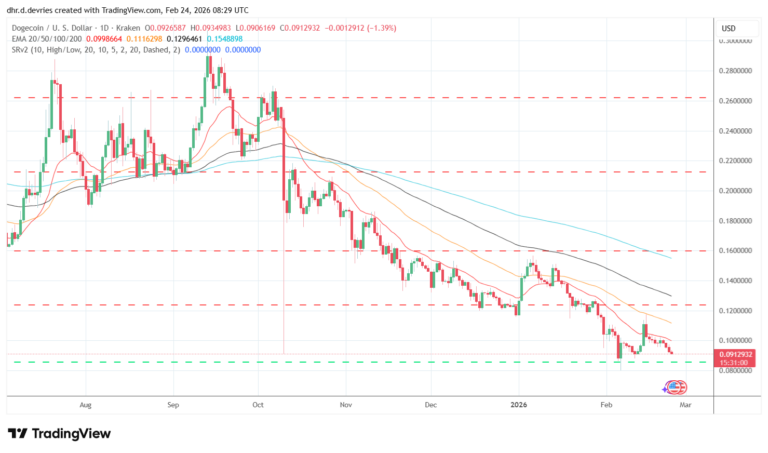
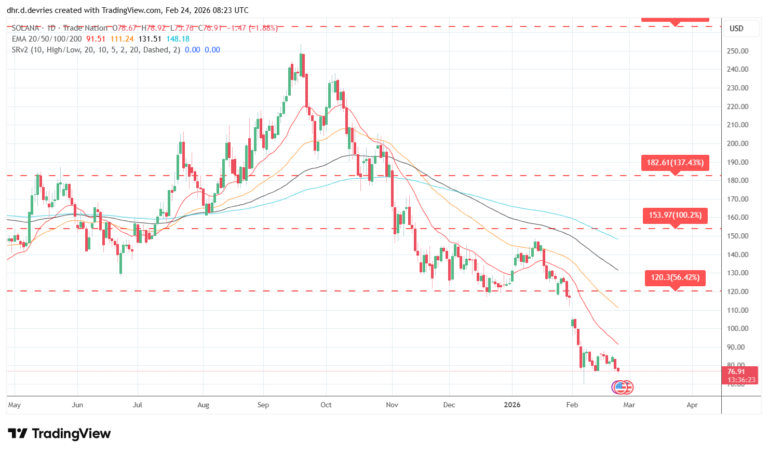
Solana (SOL) Prijsvoorspelling: Wekelijkse Analyse 24 februari 2026

Wat is Polygon?

Wat is Play-to-Earn (P2E)?
Persberichten en bijdragen











